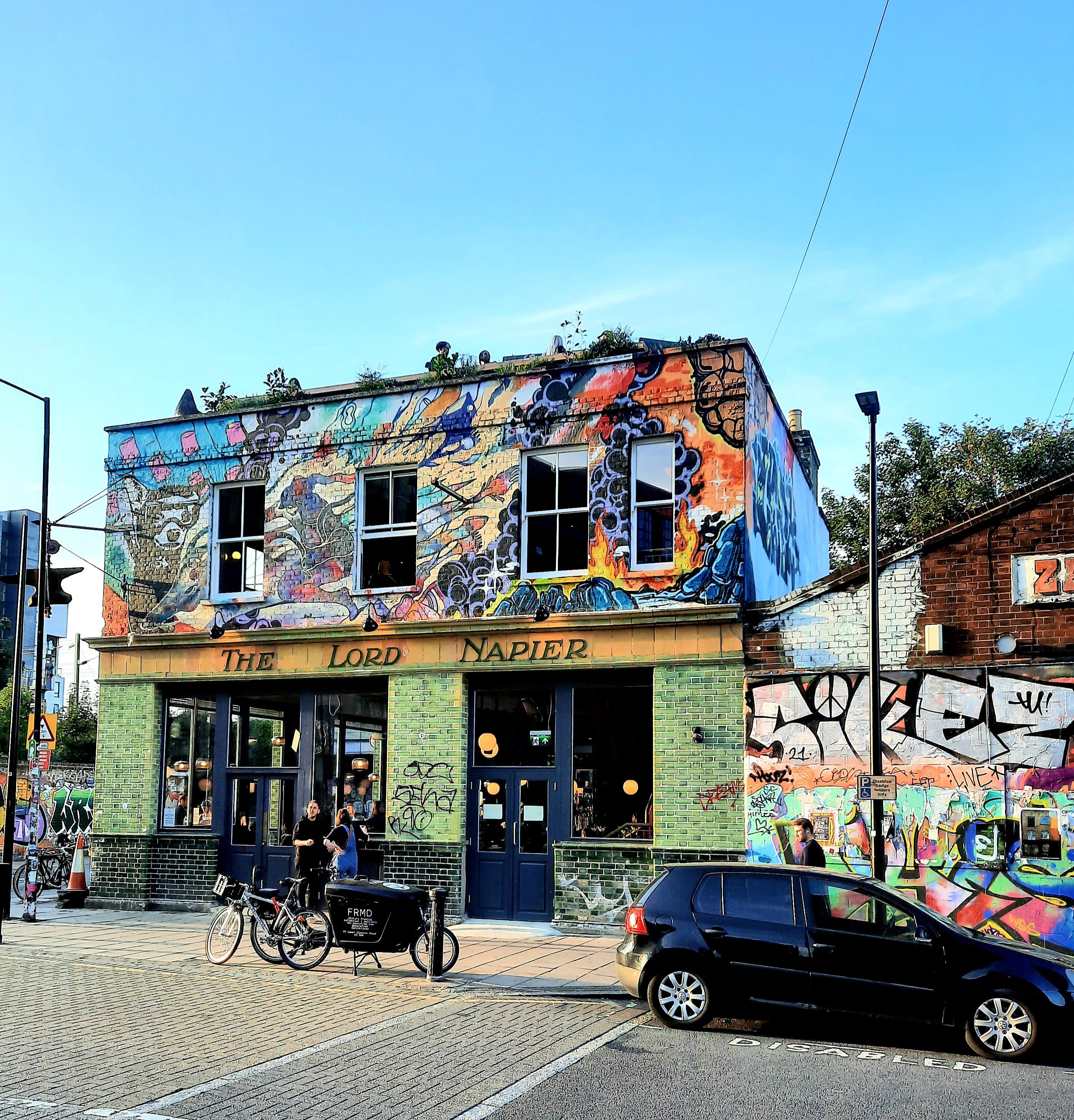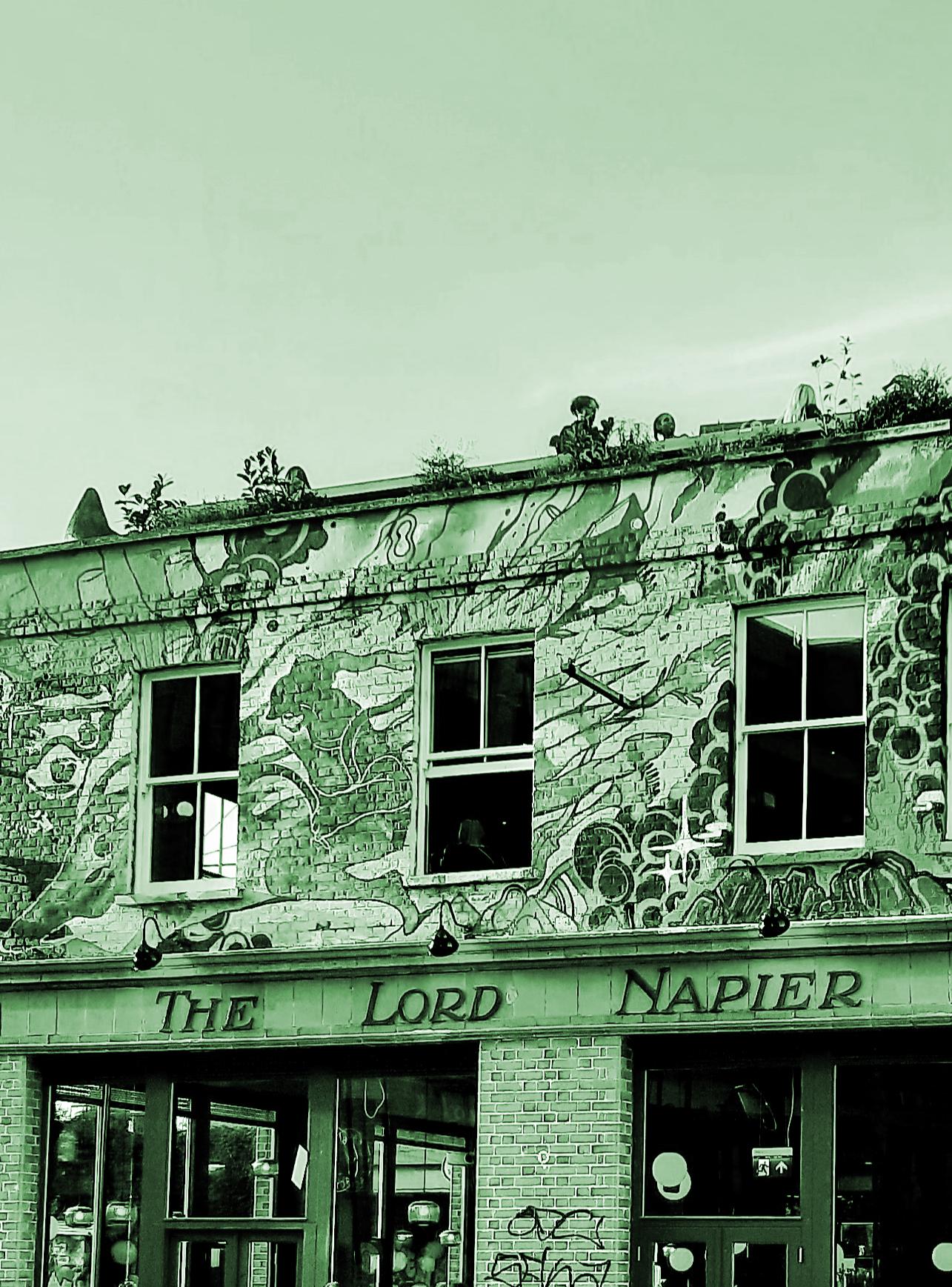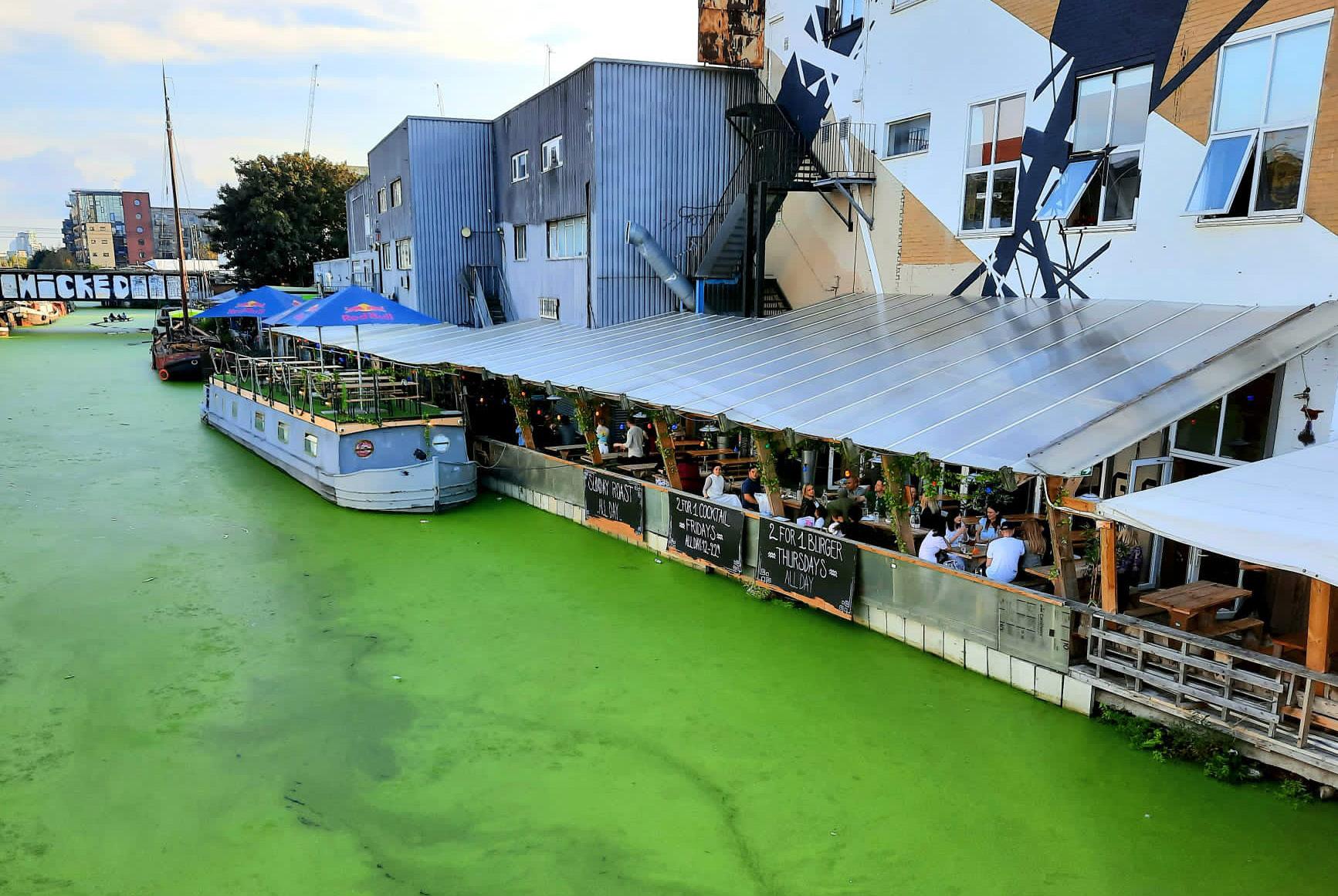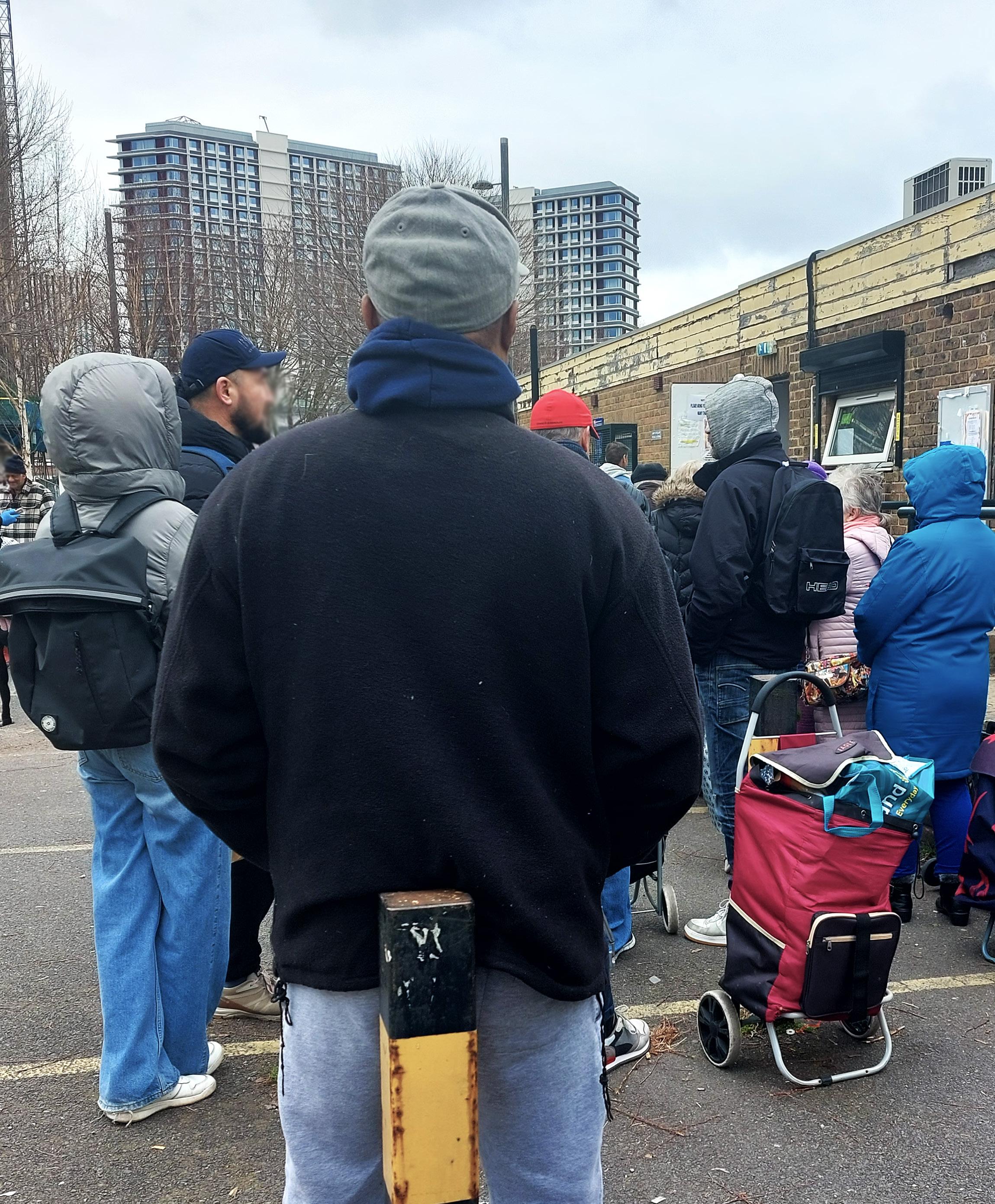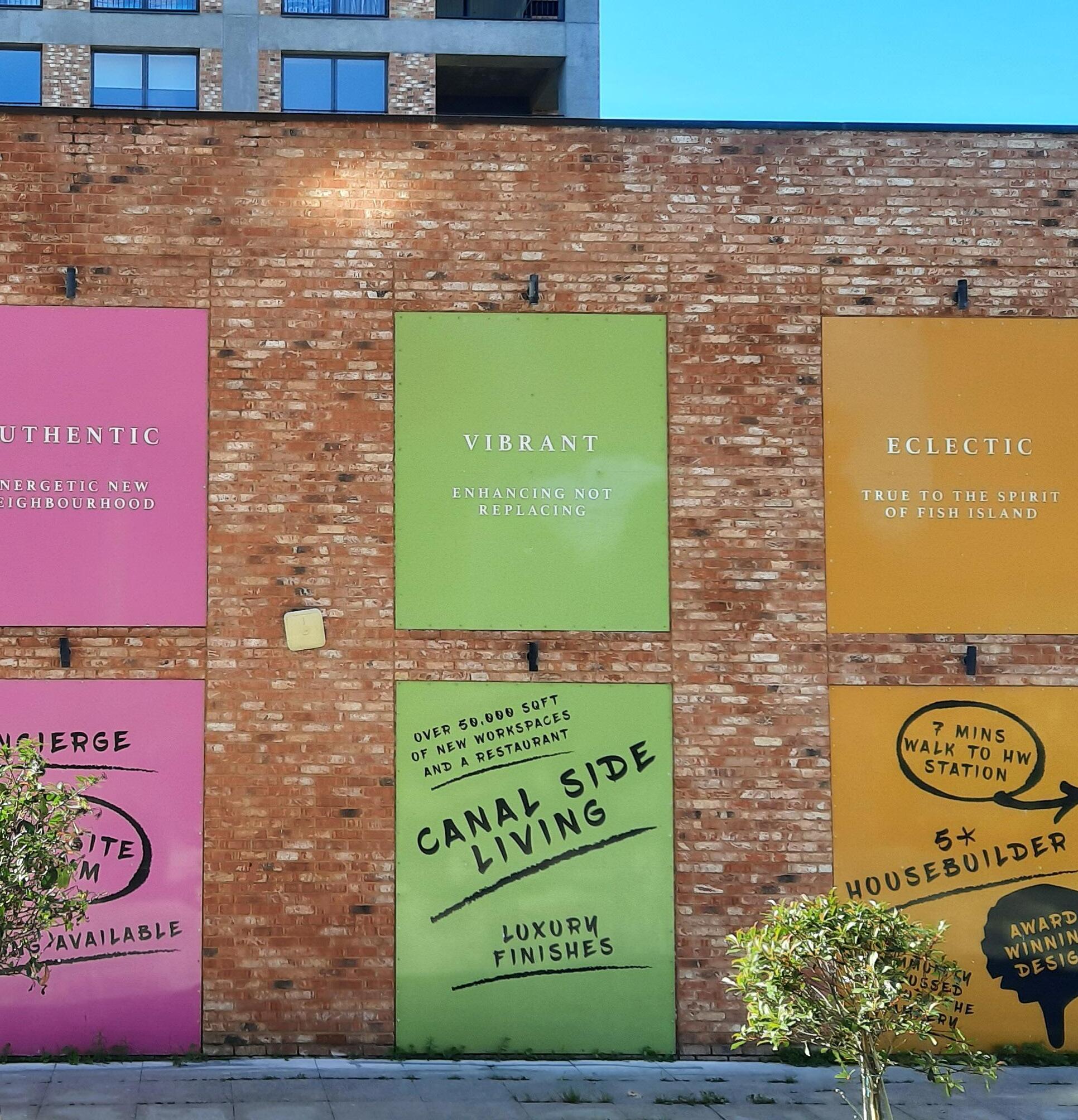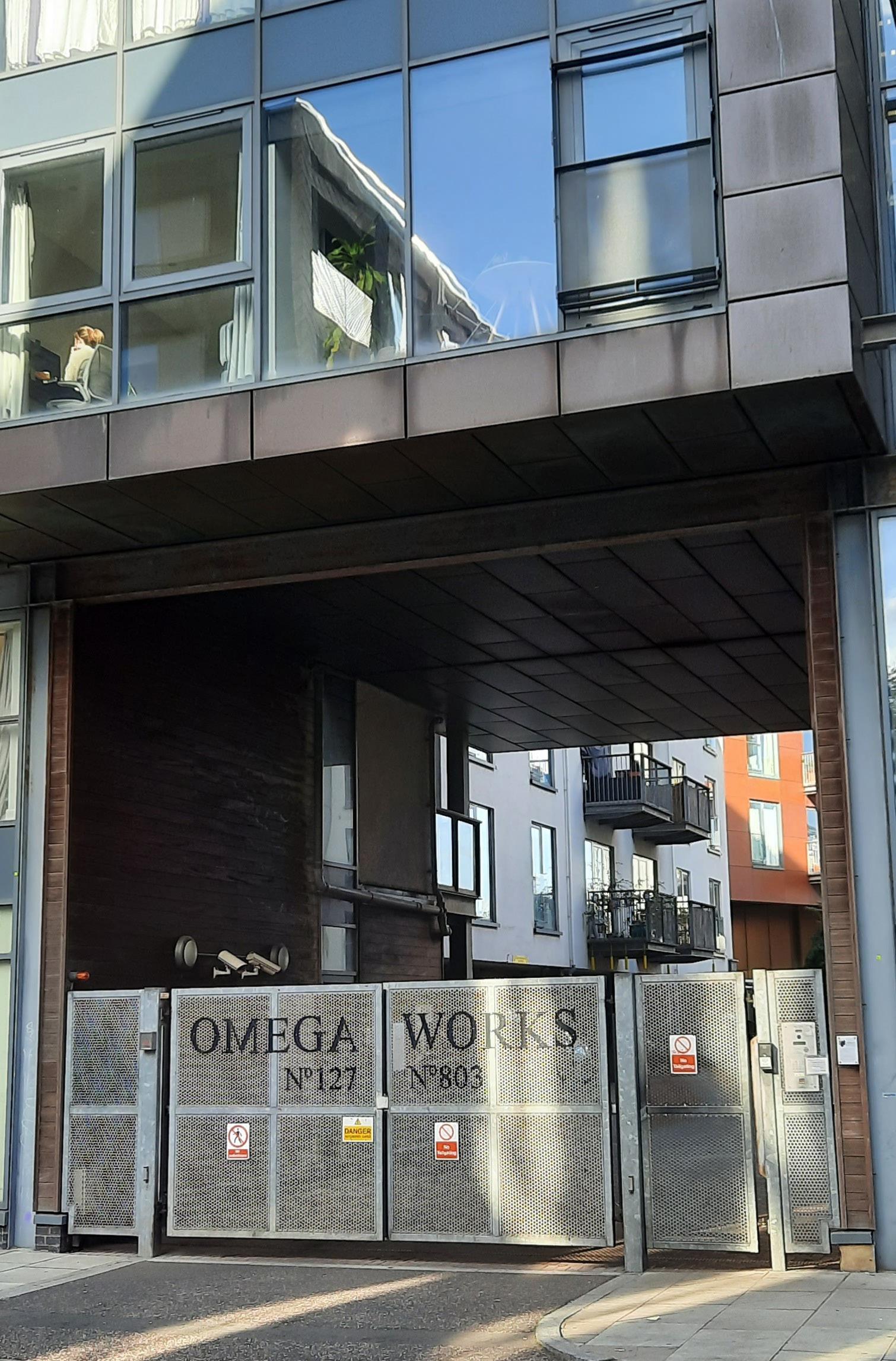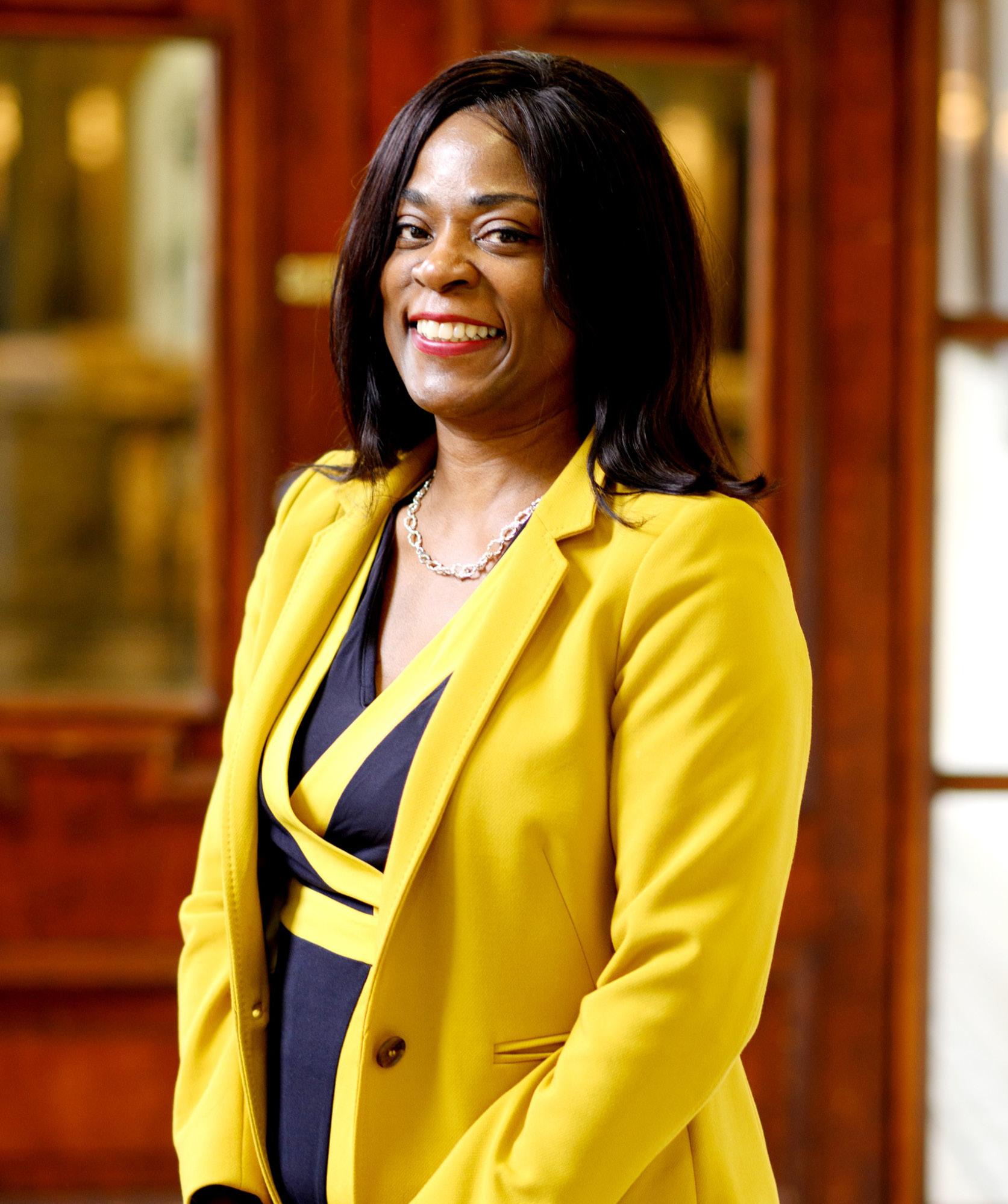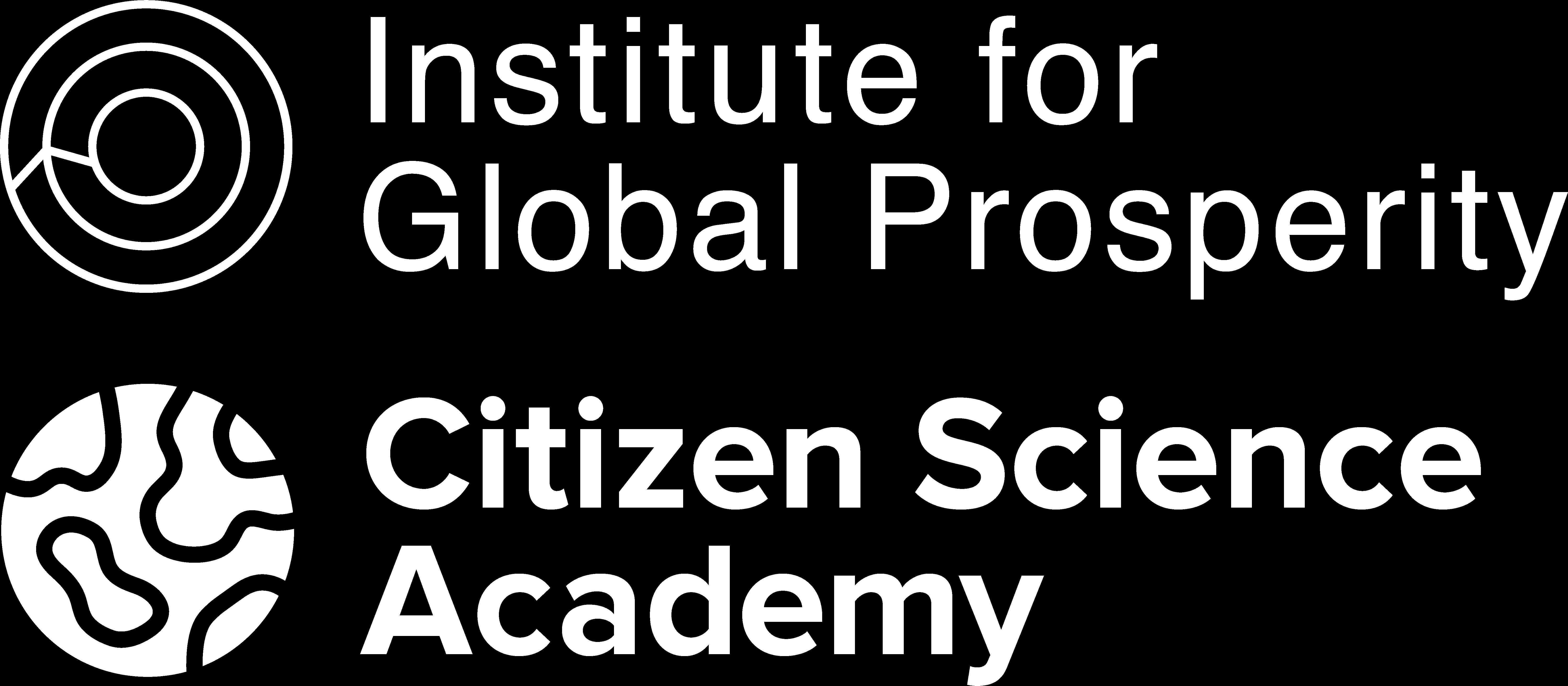the artist-starving -resident
While conducting research at a food bank near Carpenter’s Estate (just on the periphery of the Queen Elizabeth Olympic Park and a 20min walk away from Hackney Wick and Fish Island), Alexis met many residents living within the vicinity of the Olympic Park who depended on the food bank to feed themselves and their families. Some had just lost good jobs while others were working at minimum wage. In either case, they were unable to keep up with the rising cost of living. At the food bank, Alexis also met several local artists. Ben and Nadia were two such artists:
Ben is an artist, photographer and local volunteer, whose work involves large-scale installations in community spaces. He used
to live in some of the affordable live-work studios in Fish Island but has had to move due to rising rental costs. When Alexis met him, Ben had been moving from place to place within Hackney, staying with friends and sleeping on couches. He spoke of the toll that this frequent relocation had taken on his well-being and the sense of isolation he frequently felt.
Nadia is a resident of Stratford, an artist and entrepreneur who runs art workshops for her community and enjoys engaging them in her creative practice. When Alexis met Nadia at the Carpenter’s Estate food bank, she was struggling to earn enough income from her artistic practice and faced difficulties securing affordable studio spaces, grants and financial support to continue
her work.
Contrary to glamorous images of successful entrepreneurs and famous artists, Ben and Nadia’s struggles with food, job, income and housing security, are reflective of the precarious lives many artists and entrepreneurs lead. Their experiences with poverty and communitybased artistic practices defy simple divisions between artist and resident, workplace and community, revealing the importance of intersection. Rather than think of artists as always being facilitators of gentrification and poverty
repackaging, Ben and Nadia’s stories invite us to consider the common struggle and common value that can be created when artists and communities work together. This vision of a creative community hub that both Ben and Nadia spoke of requires resources - funding and space to support the work and livelihoods of artists and communities. But who gains access to funding and what gates prevent people from entering spaces?
‘we need a that doesn’t fall into the
no.10 > Fish Island housing advertisement adverts promise vibrancy: “enhancing not replacing”. how true is this?
at calling this out. I’ve had strong allies who would push my name forward as the most knowledgeable candidate. But I’ve also had to learn systems and speaking methods to get what I need. I’ve learnt to speak posh and quote names, be assertive, confident and wellspoken, as well as develop a network of white allies. This is what you need to do. Not –getting too angry.
Nadia also mentioned similar difficulties in her attempts at obtaining art funding. Although she did not speak about institutional racism, she felt a similar sense of frustration at not having the right networks and cultural capital to be seen or noticed. Being able to secure jobs and funding requires networking and being able to pitch one’s ideas and identity – knowing how to speak and who to speak to – resources that Alexis felt many women of colour lack. As a result, Alexis describes a pattern of wealth accumulation in the hands of what is popularly described in British slang as “champagne socialists” - a person who espouses socialist
ideals while enjoying a wealthy and luxurious lifestyle (Oxford Dictionary). Alexis describes this term in her own words:
On the surface, they appear to help the community, but they don’t really try to give back and don’t really understand. They’re more likely to drink champagne! They sometimes do try to help, but they don’t understand the pain – and if you don’t understand how can you help people?
In her research and life, Alexis repeatedly encountered champagne socialists who spoke of doing social good and wanting to help achieve equality and diversity, only to then act as gatekeepers to resources –funding, jobs, and spaces. Often, she felt that they tended to have greater access to resources and power because they had the right networks, were able to pitch themselves, and often knew how to repackage the painful experiences and ideas of marginalised communities without sharing gains. For Alexis, this boiled down to not truly understanding the pain of people who struggle with deprivation
alexis charles
MSc, BSc (Hons) DipM, PGCE
Expertise in leading: collaborative projects | Citizen Social Scientist (CSS) teams | creative entrepreneurs | SMEs & Urban Community Networks | L&D Training Programmes | business turnaround + growth strategies | Corporate & Community Projects, Institute for Global Prosperity | Strategic Research | Business Enterprise Education | Creative Enterprise Zone | Strategic Partnerships Boards Consultant | Interests include creating bespoke Inclusive Innovation programmes and consulting organisations on how to communicate with creative SMEs + diverse community groups to bring local change.
Hackney-born and Stratford-based. Graduated from several sponsored education programmes (UCL, Loughborough + London South Bank Universities) and is determined to support inclusive innovation, communities, creatives, and marginalized enterprising people who work through challenges, voice real stories and experiences.
looks povertylike but insidethere’s wealth true allies can awaystep looks povertylike but insidethere’s h rnm fall into the poverty we need a government doesn’t let fall into the povertytruetrap allies can awaystep
To read more about the Prosperity in east London 2021-2031 study, visitwww.prosperity-global.org/prosperityineastlondon For more zines by our citizen scientists, please visitwww.prosperity-global.org/citizen-science-academy
